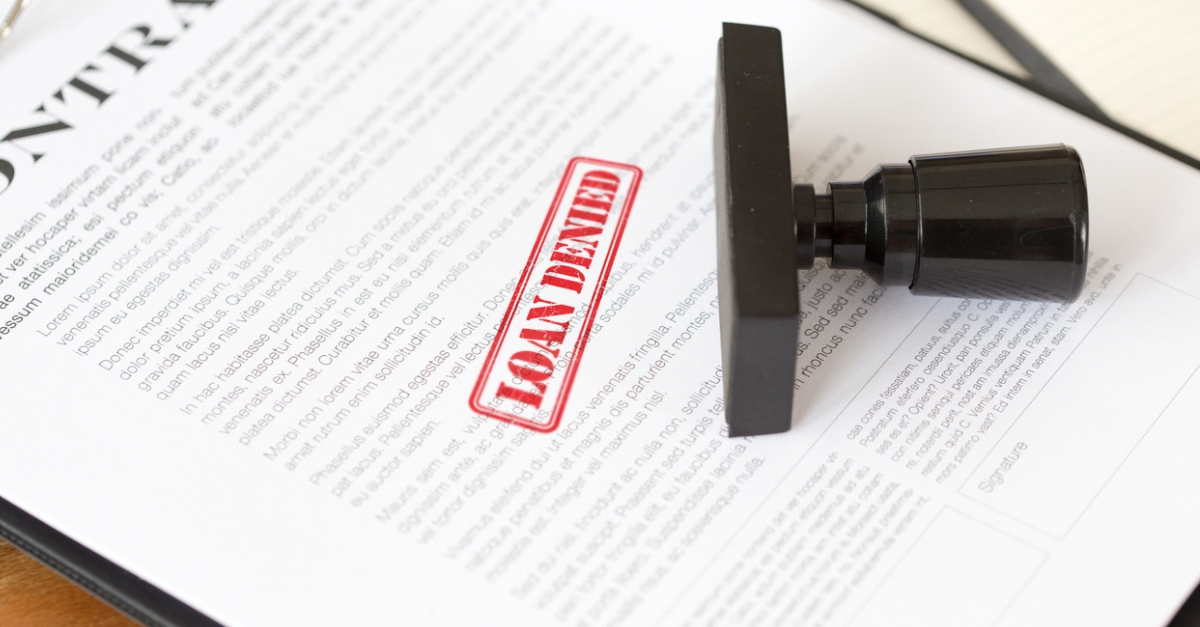
While banks, credit unions and mortgage lenders are in the business of lending money, they do not consider everyone a good candidate for a debt consolidation loan. Your application may be denied, or you may be offered a loan at such a high-interest rate that it won’t solve your debt problems. If you are turned down for a debt consolidation loan, what are your next steps and what alternative debt solutions should you consider?
Table of Contents
Why can’t I get a debt consolidation loan?
A debt consolidation loan is a new loan you use to pay off existing debt obligations.
Lenders are in the business of managing risk. They are willing to grant new credit to people they think can afford the loan payments. To assess your loan application they will review your credit history and ask for information about your current income, assets and debt load.
If you have been declined for a consolidation loan, the first step is to ask your lender why your application was refused. Knowing the reasons can help you determine what to do next.
Here are the top 5 reasons you may have been turned down for a debt consolidation loan and what you can do in each case.
Bad credit score
If you have a low credit score due to missed payments, high credit utilization or accounts in collection, your lender may deny your application based on your credit report. In most cases, a consolidation loan will require a credit score in the mid-600 range, although some lenders are willing to offer bad credit consolidation loans even if your score falls below 600.
If your problem is poor credit, learn about what factors impact your credit score to see if you can reasonably improve your credit rating before applying again.
There are lenders who offer consolidation loans with no credit check, however, beware these are generally predatory loans that come with extremely high-interest rates. We do
No collateral
The most accessible consolidation loan to get is a loan secured by assets you own. Common examples of a secured loan could be a home equity loan or a second mortgage. Collateral can include equity in your home, a car, stocks or other property that you own outright. However, if you stop making payments, a secured lender can seize and sell these assets to recover some of what you owe.
If you don’t have any assets to offer as security for a debt consolidation loan, you may not qualify for enough money to pay off existing debts.
You can consider applying for an unsecured consolidation loan if you have no collateral. However, consolidating with an unsecured loan is much more expensive. Interest rates on unsecured consolidation loans vary but can be anywhere from 39% to 59%. Going this route is highly unlikely to help you pay off debt.
Too much debt
The concept of a consolidation loan is that you are asking one lender to take on debts you owe to more than one party. If you have a lot of debt, a lender may worry about your ability to repay that amount of money. High credit card debt may indicate that your lifestyle is outpacing your income, and a lender may worry about you obtaining even more credit down the road.
If you have been denied because of too much debt, the solution is to look at ways you can cut unnecessary spending and budget some additional debt repayment. If you can reduce some of your balances, you may be considered an acceptable candidate for a low-interest debt consolidation loan in the future. However, be sure to wait at least six months between applications, as repeat hard inquiries will lower your credit score.
Not enough income
The flip side of affordability is your monthly income. You are likely to be turned down by a traditional lender if your debt-to-income ratio exceeds 43%. From their perspective, the higher your debt payments relative to your income, the higher the chance you will default.
Asking a friend or family member to co-sign your application can improve your chances of being approved even with low credit. However, if you don’t qualify because the lender is worried about your income level you may be putting your cosigner’s finances at risk.
Tight credit market
One factor that you can’t adjust is how willing financial institutions are to lend money at any point in time. During periods of economic downturns or rising interest rates, most lenders tighten their lending practices even for mortgage refinancing and home equity lines of credit (HELOC). Even borrowers with a moderate credit risk profile and equity in their home may find they cannot borrow enough to pay off credit cards and other debts because banks are just not willing to lend.
Options if your debt consolidation application is denied
Rather than getting upset about being denied a debt consolidation loan, you may want to think of this as a blessing or opportunity. In your case, the disadvantages of a debt consolidation loan may outweigh the advantages. Based on your financial situation, you may not qualify for a loan large enough to deal with all your debts. The average interest rate on any consolidation loan may be too high, and you may not be able to afford the monthly payments long-term.
If your objective is to get out of debt, consider these alternative debt relief solutions.
Debt Management Plan
A debt management plan is a consolidation program through a non-profit credit counselling agency. You do not need to have a good credit score to qualify, and these repayment programs are interest-free.
Most types of consumer credit can be included, including credit cards and outstanding bills and some payday loans, although tax debts and student loans are not eligible. Also, all lenders must agree to participate. Any single lender can choose to opt out.
However, you will still need to be able to afford to repay your loan in full plus 10% to cover fees to the credit counselling agency. If you take the maximum repayment period allowed of five years, your monthly payment will be your total debts plus 10% divided by 60 months.
Consumer Proposal
Another consolidation option is to consider a consumer proposal payment plan. A proposal also consolidates multiple debts but it also allows you to make an offer to repay less than the full outstanding debt owing. There is no interest and no additional fees beyond the settlement agreement you reach with your creditors.
A consumer proposal has the advantage of offering debt settlement versus debt consolidation. You can negotiate terms, and settlement offers of 20% to 30% of the debt owing are not unusual. Your payment schedule can be weekly, monthly or whatever works with your budget as long as you repay your offered settlement amount within five years.
If you have several unsecured debts, a consumer proposal can bind all your creditors to the same agreement as long as the majority of creditors (by dollar value) agree.
Next steps
If you don’t qualify for a debt consolidation loan, are making only minimum payments or risking late payments on your existing debts and your lender isn’t giving you a roadmap out of debt, it’s time to talk with a Licensed Insolvency Trustee about a better debt solution. We can help you deal with credit card debt, payday loans, problem car loan debt even student loans and tax debt.
Contact us for a free consultation to explore options that can reduce your monthly payments and help you become debt-free.





